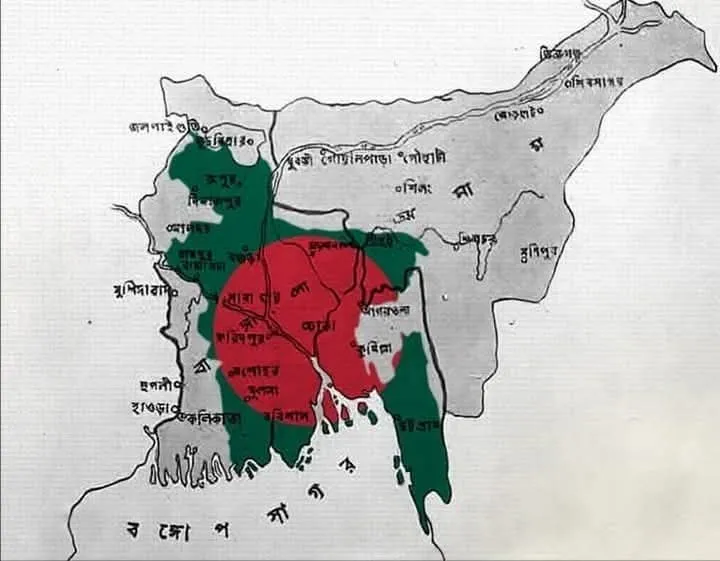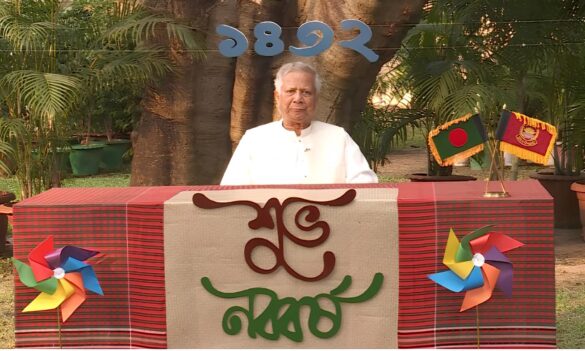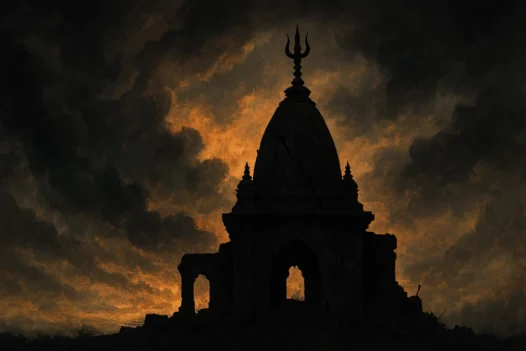By Sanjoy Kumar Barua
Mahfuz Alam, an advisor to the interim government, is facing intense backlash after sharing a controversial post on his verified Facebook page in commemoration of Bangladesh’s Victory Day.
The post, which featured a map of a “Greater Bengal” and provocative statements about the country’s liberation, was quickly deleted following widespread criticism.
In his post, shared on the evening of December 16, Alam claimed, “Victory has come, but not in its entirety—true freedom is still far away!”
He further asserted, “We cannot reach freedom through Bangladesh, unless we recover the population from the Himalayas to the Bay of Bengal,” suggesting that the current state of Bangladesh remained incomplete.
These remarks ignited a storm of outrage, with many accusing Alam of advancing a militant agenda aimed at destabilizing regional peace and sovereignty.

His assertion that true freedom could only be achieved by reclaiming territories beyond Bangladesh’s current borders alarmed many, with some fearing it could fuel regional tensions.
Alam’s post also emphasized the need for a cultural transformation, linking the country’s independence struggles from 1947 to 1971 as unfinished business.
The post also included a map of a “Greater Bengal,” which further ignited concerns about Alam’s political and ideological stance.
Critics labeled the content irresponsible, especially on a day meant to honor the country’s hard-won independence, and some accused him of fueling divisiveness.
Alam’s call for “new geography and arrangements” and his declaration that Bangladesh must “break free from this cage” resonated with some, but drew strong opposition from others.
The post was swiftly deleted after a few hours, but the fallout continued as Alam’s comments sparked a national conversation about nationalism and identity.

Alam’s words referencing historical figures like Maulana Bhasani and Sheikh Mujibur Rahman further inflamed the controversy, as many questioned the direction of Bangladesh’s political future.
Adding to the controversy, earlier remarks by Bangladesh’s interim government advisor Dr. Muhammad Yunus at the Clinton Global Initiative referred to Mahfuz Alam as the mastermind behind a movement that led to the ouster of Prime Minister Sheikh Hasina.
Alam, who has been allegedly linked to Hizb ut-Tahrir, a banned terrorist organization in several Western countries, is said to have orchestrated the operation, which was described as “meticulously designed” with his identity deliberately concealed.
The revelations about Alam’s alleged involvement in anti-government activities have raised further alarm, with many now calling for a deeper investigation into his connections and role in the political landscape of Bangladesh.

As of now, Alam has remained silent on the controversy surrounding his post and the serious allegations against him.
However, the incident has ignited intensified debates about the future trajectory of Bangladesh’s governance and political landscape.
Source The Chittagong Hill Tracts







